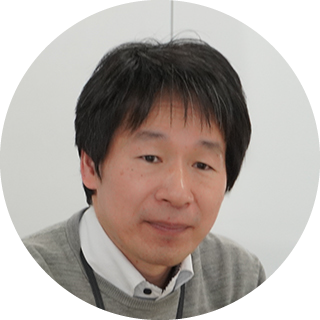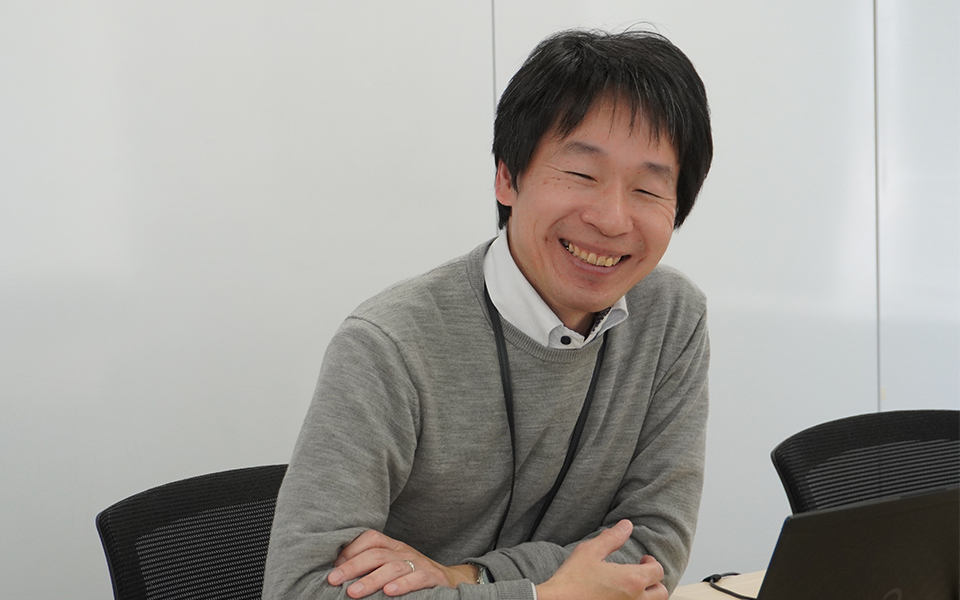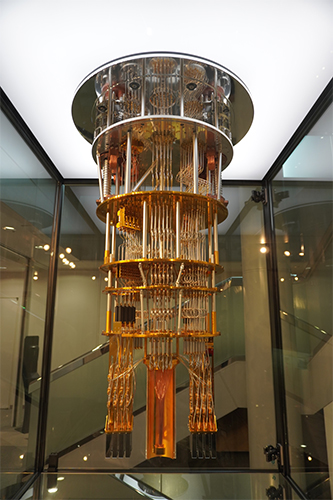Researcher Interviews
Exploring new frontiers with Fujitsu's quantum computing research and development
JapaneseThe power of quantum computers will undoubtedly transform many industries fundamentally, from drug discovery to finance, bringing value to both companies and society. In this article, we introduce how Fujitsu’s research and development efforts are contributing to the practical application of quantum computers, as well as exploring the initiatives and challenges involved.
Published on May 22, 2024
RESEARCHER
-

Shingo Tokunaga
Researcher
Quantum Hardware Core Project
Quantum Laboratory
Fujitsu Research
Fujitsu Limited
Fujitsu and RIKEN have already successfully developed a 64-qubit superconducting quantum computer at the RIKEN-RQC-Fujitsu Collaboration Center, which was jointly established by the two organizations (*1). Our interviewee, researcher Shingo Tokunaga, is currently participating in a joint research project with RIKEN. He majored in electronic engineering at university and worked on microwave-related research topics. After joining Fujitsu, he worked in a variety of software fields, including network firmware development as well as platform development for communication robots. Currently, he is applying his past experience in the Quantum Hardware Team at the Quantum Laboratory to embark on new challenges.
Revolutionizing drug discovery and more with quantum computers
In what fields do you think quantum computing can be applied to?
Shingo:Quantum computing has many potential applications, such as finance and healthcare, but especially in quantum chemistry calculations used in drug development. If we can use it for these calculations, we can realize efficient and high precision simulations in a short period of time. Complex calculations that traditionally take a long time to solve on conventional computers are expected to be solved quickly by quantum computers. One such example of this is finding solutions for combinatorial optimization problems such as molecular structure patterns. The spread of the novel coronavirus has made the development of vaccines and therapeutics urgent, and in such situations where rapid responses are needed, I believe the time will come when quantum computers can be utilized.
Exciting initiatives for the quantum research team
Fujitsu is collaborating with world-leading research institutions to advance research and development in all technology areas, from quantum devices to foundational software and applications, with the aim of realizing practical quantum computers. Additionally, we are also advancing the development of hybrid technologies (*2) for quantum computers and high-performance computing technologies, represented by the supercomputer Fugaku, which will be necessary for large-scale calculations until the full practicality of quantum computers is achieved.
What themes are you researching? What are your challenges and goals?
Shingo:One of the achievements of our collaborative research with RIKEN is the construction of a 64-qubit superconducting quantum computer. Superconducting quantum computers operate by manipulating quantum bits on quantum chips cooled to under 20 mK using ultra-low-temperature refrigerators, driving them with microwave signals of around 8 GHz, and reading out the state of the bits. However, since both bit operations and readouts are analog operations, errors are inherent. Our goal is to achieve higher fidelity in the control and readout of quantum bits, providing an environment where quantum algorithms can be executed with high computational accuracy, ultimately solving our customers' challenges.
Solving research challenges
What role do you play in the team?
Shingo:The Quantum Hardware Team consists of many members responsible for tasks such as designing quantum chips, improving semiconductor manufacturing processes, designing and constructing components inside refrigerators, as well as designing and constructing control devices outside refrigerators. I am responsible for building control devices and controlling quantum bits. While much attention is often given to the development of the main body of quantum computers or quantum chips, by controlling and reading quantum bits with high precision, we can deliver the results of the development team to users, and that's my role.
How do you carry out controlling quantum bits, and in what sequence or process?
Shingo:The first step is the basic evaluation of the quantum chip, followed by calibration for controlling the quantum bits. First, we receive the quantum chip from the manufacturing team and perform performance measurements. To evaluate the chip, it is placed inside the refrigerator, and after closing the cover of the refrigerator, which is multilayered for insulation, the inside is vacuumed and cooling begins. It usually takes about two days to cool from room temperature to 20 mK. In the basic evaluation, we confirm parameters such as the resonance frequency of the quantum bits and coherence time called T1(the time it takes for a qubit to become initialized). Then, we perform calibration for quantum bit operations and readouts. Bit operations and readouts may not always yield the desired results, because there are interactions between the bits. The bit to be controlled may be affected by the neighboring bits, so it is necessary to control based on the overall situation of the bits. Therefore, we investigate why the results did not meet expectations, consult with researchers at RIKEN, and make further efforts to minimize errors.

How do you approach the challenge of insufficient accuracy in bit operations and readouts?
Shingo:There are various approaches we can try, such as improving semiconductor processes, implementing noise reduction measures in control electronics, and changing the method of microwave signal irradiation. Our team conducts studies on the waveform, intensity, phase, and irradiation timing of microwave signals necessary to improve the accuracy of quantum bit control. Initially, we try existing methods described in papers on our quantum chip and then work to improve accuracy further from there.
What other areas do you focus on or innovate in, outside of your main responsibilities? Can you also explain the reasons for this?
Shingo:I am actively advancing tasks to contribute to improving the performance of quantum computer hardware further. The performance of the created quantum chip can only be evaluated by cooling it in a refrigerator and conducting measurements. Based on these results, it is important to determine what is needed to improve the performance of quantum computer hardware and provide feedback to the quantum chip design and manufacturing teams.
For Fujitsu, the development of quantum computers marks a first-time challenge. Do you have any concerns?
Shingo:I believe that venturing into unknown territories is precisely where the value of a challenge lies, presenting opportunities for new discoveries and growth. Fujitsu is tackling quantum computer research and development by combining various technologies it has cultivated over the years. I aim to address challenges one by one and work towards achieving stable operation. Once stable operation is achieved, I hope to conduct research on new control methods.
Working towards accelerating quantum computer research and future projects
What kind of activities you are undertaking to accelerate your research on quantum computers?
Shingo:Quantum computing is an unknown field even for myself, so I am advancing development while consulting with researchers at RIKEN, our collaborative research partner. I aim to build a relationship of give and take, so I actively strive to cooperate if there are ways in which I can contribute to RIKEN's research.
What is your outlook for future research?
Shingo:Ultimately, our goal is to utilize quantum computers to solve societal issues, but quantum computing is still in its early stages of development. I believe that it is the responsibility of our Quantum Hardware Team urgently to provide application development teams with qubits and quantum gates that have many bits and high fidelity. In particular, fidelity improvement in two-qubit gate operations is a challenge in the field of control, and I aim to work on improving it. Additionally, I want to explore the development of a quantum platform that allows customers to maximize their utilization of quantum computers.
Fujitsu Technology Hall
“We use technology to make people’s lives happier.” As a result of this belief, we have created various technologies and contributed to the development of society and our customers. At the Fujitsu Technology Hall located in the Fujitsu Technology Park, you can visit mock-ups of Fujitsu's quantum computers, as well as experience the latest technologies such as AI.




